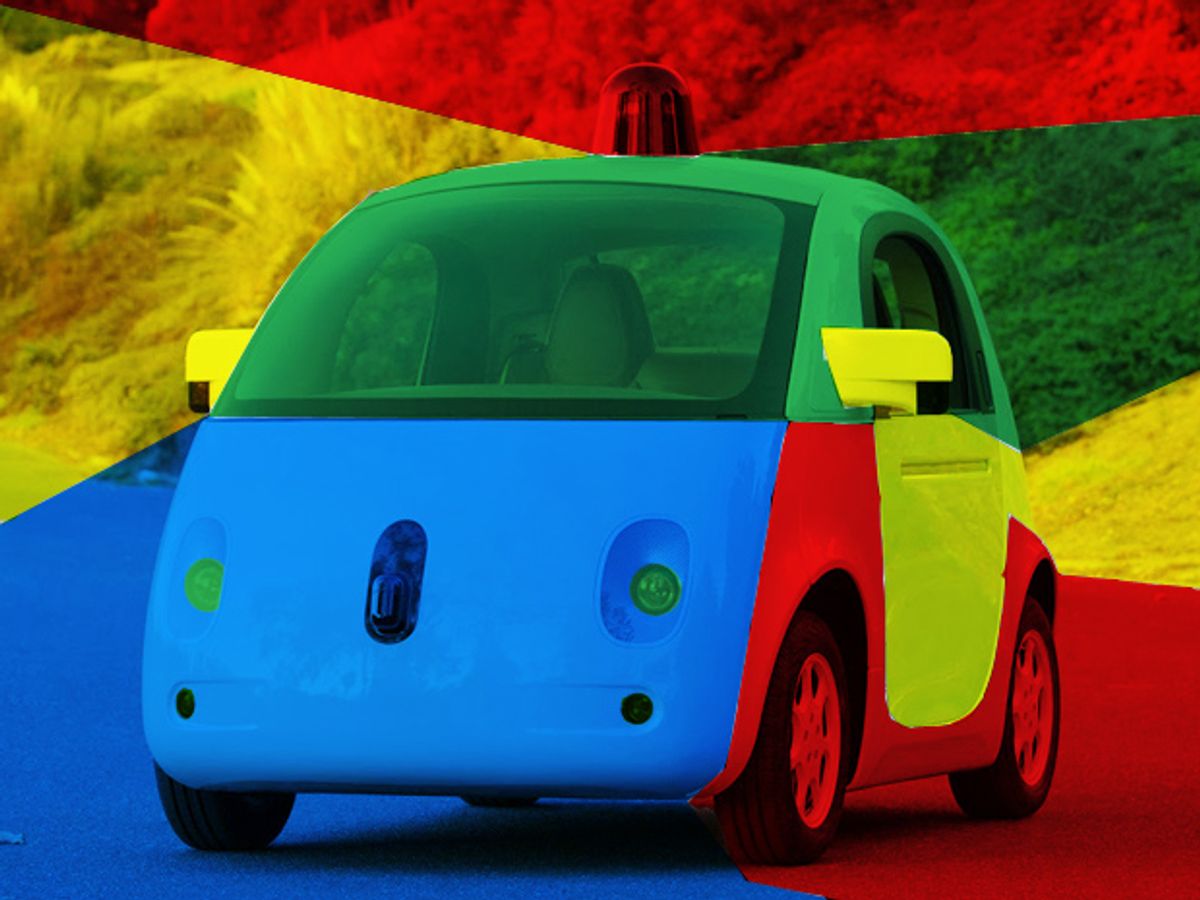Google took the unusual step last week of identifying key technology partners in the development of its new prototype self-driving car. Speaking at the North American International Auto Show in Detroit, project director Chris Urmson named Continental, Roush, Bosch, ZFLS, RCO, FRIMO, Prefix, and LG as companies that had helped to build the pod-like vehicle. The fully autonomous vehicle is undergoing testing at Google's private track in California prior to road tests at NASA Ames later this year.
The announcement might seem strange considering how secretive Google was about its original self-driving Prius cars, which IEEE Spectrumrevealed only last year as having been largely built by a little-known start-up in Berkeley.
From information supplied by Google's press team, it is possible to get an idea of what each company is contributing:
Roush Enterprises is a Detroit-based engineering firm that was already known to have been contracted for design integration and final assembly of the fleet of 100 autonomous vehicles.
One of the most interesting new announcements is that of LG, which is supplying the battery for the plug-in vehicle. LG is also developing a battery for GM's new 300-kilometer Bolt EV, possibly utilizing a modular lithium ion system similar to that found in Tesla's vehicles.
Bosch is quoted as supplying major components of the electric powertrain including power electronics and what it calls the E-Machine. This device works as a motor to turn electricity from the battery into mechanical energy for driving, and as a generator to recharge the battery during regenerative braking.
Bosch is also providing the Google car's long-range radar unit, and is about to fully acquire ZFLS, aka ZF Lenksysteme, a German steering systems company. ZFLS is, unsurprisingly, building the steering technology for Google's car, which uses parallel, redundant motors to ensure the car never loses the ability to direct itself.
RCO Engineering is designing the seats for the car, while FRIMO will make plastic and composite components for it interior and exterior. Prefix is a general automotive design and manufacturing engineering firm.
Continental's role is perhaps the most obscure. The German auto supplier now has an “intelligent transportation systems" business unit based in Silicon Valley, and has been developing multiple self-driving technologies in competition with Google, including its own autonomous VW Passats. At the moment, we only know that Continental is supplying Google with tires and some unspecified electronics and components. A Reuters report from the Auto Show said that Google is also using microprocessors from Nvidia to power its object detection and recognition software.
The US $64,000 question is where the Google car'sLIDAR will come from. Actually, it's more like a $70,000 question: the price of the Velodyne device used in Google's previous vehicles. At a conference in Washington last Monday, Urmson said that some of the LIDAR sensors were being designed in house because Google was unhappy with what was available. This is the single most expensive component of Google's design. It will be interesting to see whether Velodyne (or another LIDAR supplier) can bring the price down fast enough to make self-driving cars affordable within five years, when Urmson expects Google's technology to be production-ready.
Google's decision to go public with its suppliers, while uncharacteristic, is sending a clear message to the auto industry. It suggests that Google does not intend to bulldoze its way into car showrooms the way it did, say, in mobile phones, by simply buying Motorola's handset business. Neither is it attempting to rebuild the industry from scratch like Tesla. By revealing the extent to which it is relying on well-established automotive companies, Google is signaling that it is content to be part of the existing ecosystem of OEMs and specialist suppliers. Whether Google itself ultimately ends up as a manufacturer or a supplier, its apparent intention to play nice will help many in Detroit breathe easier.
This post was corrected on 21 January 2015.
Mark Harris is an investigative science and technology reporter based in Seattle, with a particular interest in robotics, transportation, green technologies, and medical devices. He’s on Twitter at @meharris and email at mark(at)meharris(dot)com. Email or DM for Signal number for sensitive/encrypted messaging.



